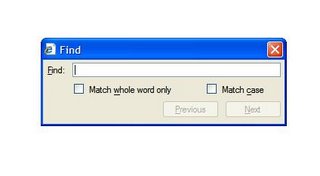I do this for two reasons:
- "Computer Science" is a misnomer, in my opinion, and
- It helps me determine if people were paying attention when they read my resume. It's always a good talking point during an interview.
Why is Computer Science a misnomer? Well, for starters, "computer" is a noun. To expound upon this distinction further, the definition of a "computer" according to Microsoft is:
Any device capable of processing information to produce a desired result. No matter how large or small they are, computers typically perform their work in three well-defined steps: (1) accepting input, (2) processing the input according to predefined rules (programs), and (3) producing output.
...so, it's a "device" (noun) that is capable of processing information, or performing computations. According to Wikipedia, a computer is:
A computer is a machine for manipulating data according to a list of instructions known as a program.
...again, a computer is a "machine" (noun) for manipulating data, or performing computations. There are literally hundreds of definitions of "computer" available on the Internet, but the general theme is that it's an object that is capable of performing computation. In a general sense, what the general public considers to be a computer is the ugly beige box directly to their left. But in reality, it's much more general than that. An abacus is a computer in the sense that is capable of doing computation.
This is an important distinction; computational science really is not the study of computers themselves. Computer Science implies that it is the study of machines for manipulating data, but really it's the study of manipulating data. The late Edsger Dijkstra was quoted as saying:
Computer Science is no more about computers than astronomy is about telescopes.
...this coming from a guy who won the Turing Award means an awful lot. The implications of this otherwise comical quote are significant; astronomers don't study telescopes. They use telescopes to study celestial objects and phenomena. Computational Scientists don't study computers. They study computational topics that may or may not involve computers.
The way I see it, "Computer Science" is a term that should go away, because it is a misnomer. I think it should be replaced with three separate degrees that have some overlap, but focus on their respective titles:
- Computational Science - this is the study of--surprise, surprise--computation! As in, algorithms, data structures, programming languages, compilers, and the mathematical foundations of computation (e.g. graph theory, state theory, boolean algebra, number and type theory, etc.). It is almost more of a mathematical, logical and theoretical endeavor than an applied science, and is arguably more related to mathematics than any other field.
- Computer Engineering - this is the study of engineering computers, which can (and should) be generalized to the notion of creating devices to aid in computation. This is almost more of a degree in electrical engineering, but with a slant towards engineering devices that aid in computation.
- Software Engineering - the study of engineering software. At first this would appear redundant, but were that true, we could also say that Mechanical Engineering is redundant. Software Engineering is the applied arm of computational science; how do we apply theory and research in actual software? Sure, the theoretical approach to garbage collection is great and all, but how does that get applied in practical terms? Software Engineering can have overlap with Computer Engineering (e.g. firmware), but in general, Software is concerned with programmatic engineering verses hardware/electrical engineeering.
Obviously this could be subdivided more, but the idea is separating theoretical and/or mathematical endeavors from applied and/or vocational endeavors. This is not crazy, given that Mechanical Engineering is arguably an applied, vocational version of physics and mathematics. This is not to say it's a lesser degree or inferior, but the focus of a Mechanical Engineering is obviously quite different from Physics or Mathematics.
All of this bitching and moaning on my behalf often raises the question: why would anyone care about making such a nitpicky distinction? It matters because academia is a complete mess. I have attended three separate institutions, and all three of them seemed terribly confused about what "computer science" actually entailed. I believe part of this has to do with not taking the time to actually define what "computer science" may be, and why anyone would bother studying it.
To be continued...


